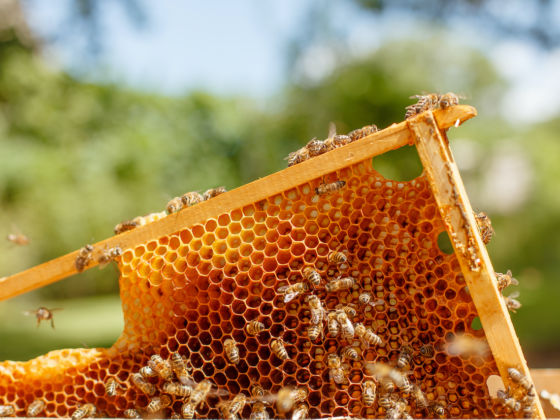The 2010s have been the decade that marked the rise of almond milk as an alternative to cow’s milk — but it turns out this low-calorie, vegan substitute isn’t as inherently good as it’s made out to be. According to an investigative report from The Guardian, the increasing demands of the California almond industry are placing an incredible amount of pressure on the beehives used to pollinate their orchards, resulting in the deaths of billions of honeybees.
Dennis Arp, a commercial beekeeper, makes half of his income from renting out his hives to pollinate almonds. Now, however, he’s losing over 30 percent of his bees each year.
And Arp isn’t alone. A survey of commercial beekeepers found that 50 billion honeybees were killed during the winter of 2018-19, i.e. more than one-third of the US commercial bee colonies.
